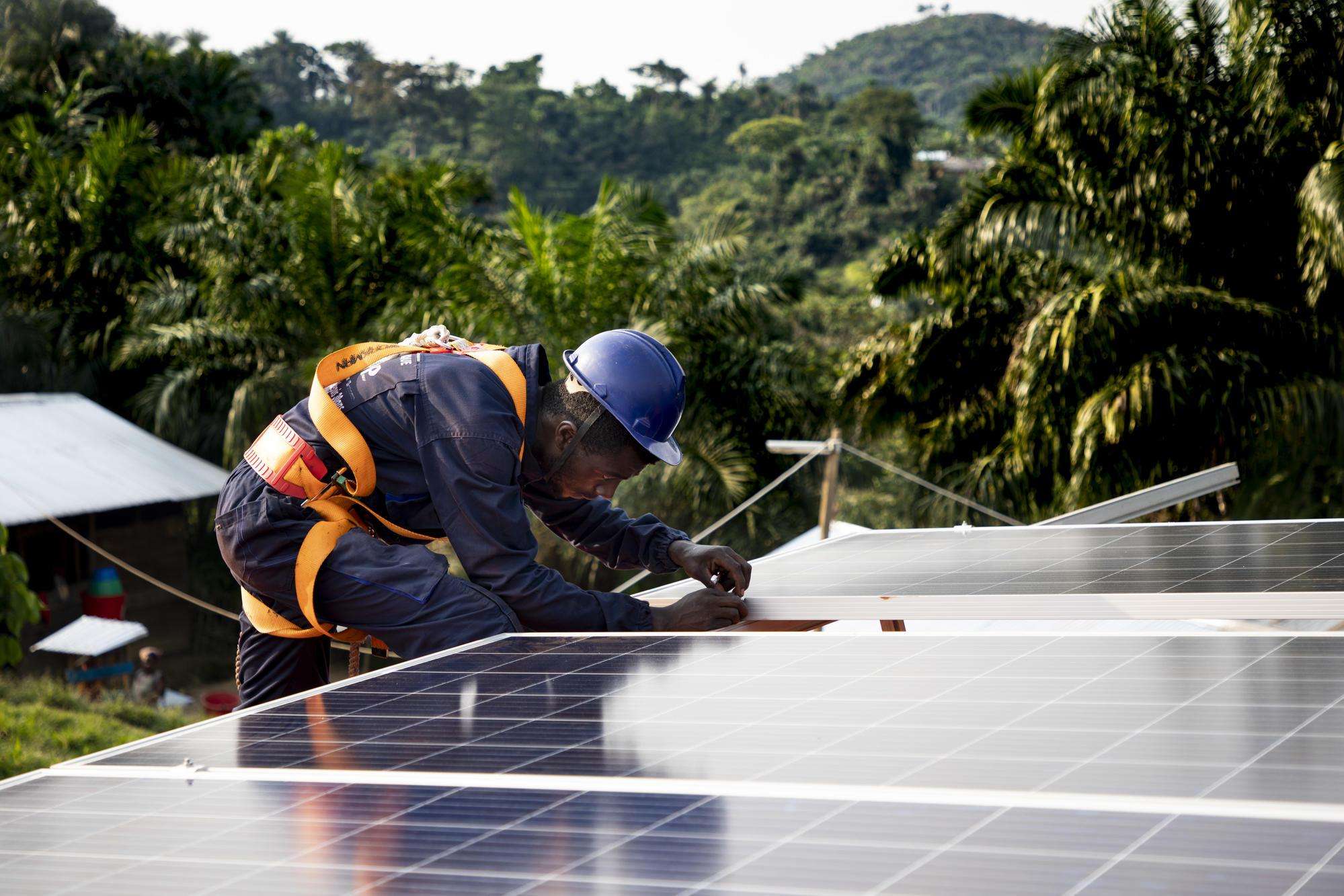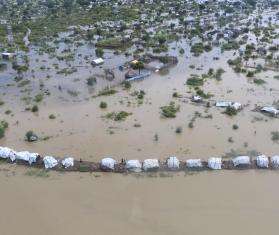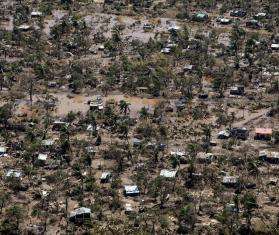Doctors Without Borders/Médecins Sans Frontières recognizes that the climate emergency is a threat to the future of our planet and the health and wellbeing of people around the world. The communities we assist are already experiencing the consequences of climate change, and we know that health and humanitarian crises will increase in scale and severity as the climate crisis accelerates. Urgent action must be taken now to prevent more human suffering and respond to the impacts.
“Human health will be increasingly damaged by the negative consequences of the climate emergency,” says Dr. Christos Christou, MSF International President. “It is not enough to respond to health problems when they arise. We have to do our part to prevent them from happening in the first place. Failing to act now would mean breaking our medical and ethical obligations towards patients and communities.”
MSF’s commitment to action
MSF first adopted an Environmental Pact in October 2020, recognizing our own contribution to climate change and environmental degradation, and committing to minimize our carbon and waste footprint. In December 2021, we set a movement-wide target to slash our carbon emissions by 50 percent by 2030. And this month, on March 24, 2022, MSF formally signed on to the Climate and Environment Charter, an initiative led by the International Committee of the Red Cross (ICRC), International Federation of Red Cross and Red Crescent Societies (IFRC) to support greater climate action across the humanitarian sector at large. We are joining nearly 200 local, national, and international humanitarian organizations who have signed on to this Climate Charter.
MSF’s pledge to cut carbon emissions by half by 2030 is aligned with the goals of the Paris Agreement on climate to limit global warming to below 2 degrees Celsius. The international MSF movement has unanimously agreed to this ambitious target and to report on the progress towards meeting it. We are setting the baseline at 2019 levels, as 2020 emissions were estimated to be below average due to various factors related to the COVID-19 pandemic.
Assessments to establish MSF’s total 2019 carbon footprint are underway. It is already clear that our organization will have to continue to adapt and address issues related to the transport of people and supplies, construction, energy, and waste management.

The climate crisis hits vulnerable people hardest
In many MSF project locations, our medical humanitarian teams are responding to situations that are linked to the changing environment. This includes increasing numbers of people with infectious diseases such as malaria, dengue fever, and cholera, as a result of changing rainfall and temperature patterns. There are also increasing cases of zoonotic diseases—those transmitted from animals to humans— due in part to rising pressures on the environment and more frequent extreme weather events, such as cyclones, hurricanes, and droughts. Extreme weather can also contribute to malnutrition. In many places where we work today, our teams see people with multiple health needs resulting from frequent epidemics, food insecurity, conflict, and displacement— all of which are exacerbated by the climate emergency.
Urgency to act
Building on MSF’s 2020 Environmental Pact, we recognize the need to make real and immediate changes in order to help curb the health impacts of climate change. This is why we are pledging to drastically reduce our emissions within this decade and why we are joining the Climate Charter. As an emergency medical organization, our priority will always be to provide rapid assistance to people in some of the world’s most remote places. We must find a way to do this while minimizing our environmental footprint. Within MSF, across the humanitarian sector, and in the whole of society, we must change the way we operate. This will not be easy, but will only become more necessary as climate change increasingly exacerbates humanitarian emergencies.
“Decarbonizing the way we implement and support our medical emergency projects in over 70 countries is not a small task. But we are determined to get there, and we are working from all angles to find solutions,” says Christou. “If we want to spare future generations from more suffering and disasters, we all need to take responsibility. The climate crisis is ultimately a health crisis and curbing emissions is now part of our humanitarian action.”



